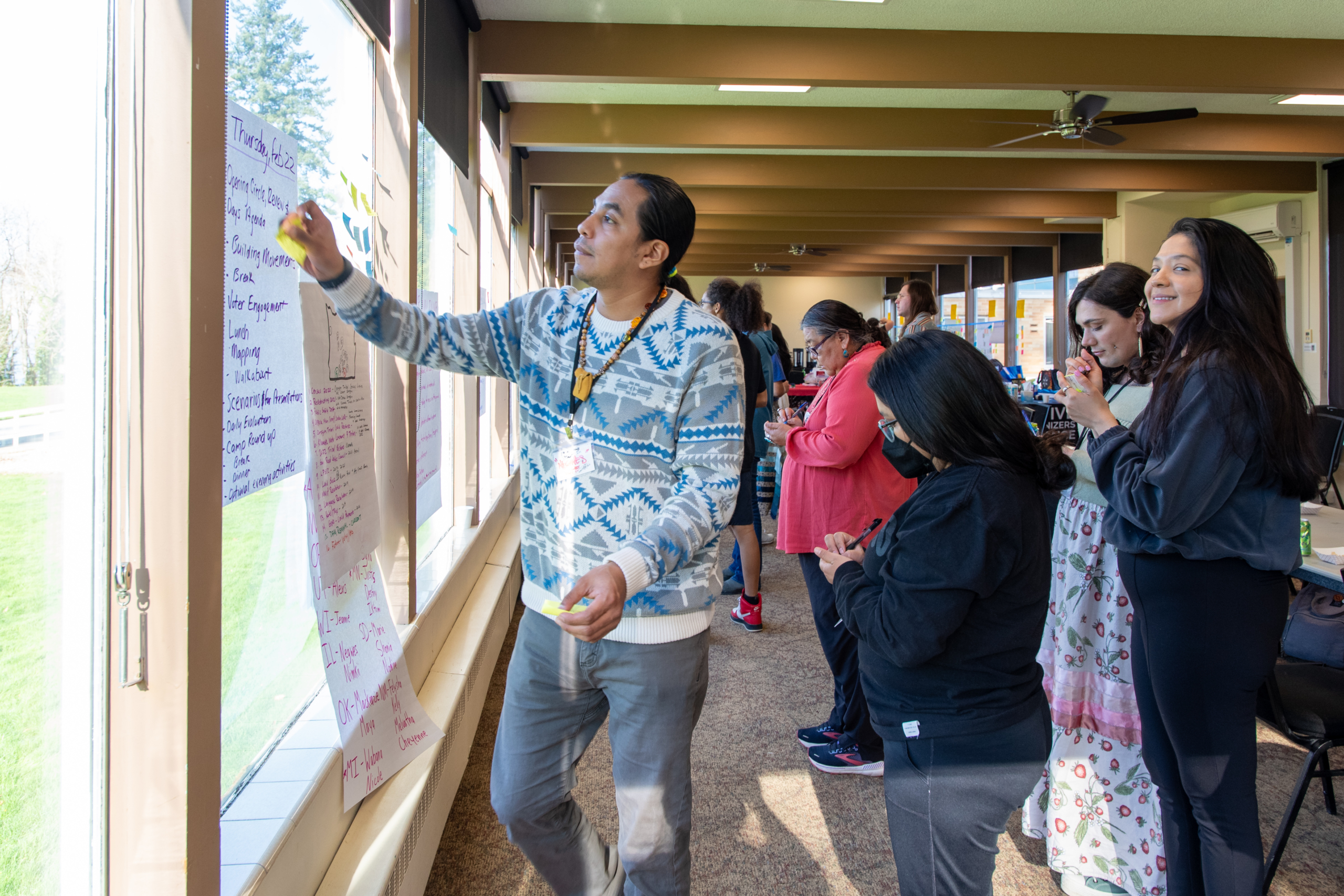Native Organizers Alliance (NOA) is proud to offer a second cohort of Native Organizing Fellowships to build grassroots organizing and coalitions on an array of national initiatives and events. This program is open to all Native people who want to be a part of building an ecosystem of tribes and Native community groups in your state as part of a national network. NOA will provide training and an organizing toolkit for a three-month campaign, with the opportunity to continue. Interested participants should read the description below and then submit an application form. All fellowships are state-based, and therefore remote. NOA strictly follows CDC Covid guidelines. All participants must provide proof of vaccination.
Apply Today: National Organizer Training 2024
NOA will be conducting a national Native Organizer Training in Federal Way, Washington from November 11-16. Indigenous organizers from across Indian Country are eligible to apply
Hours and Compensation:
Accepted Fellows will be expected to attend training and weekly group meetings, meet once a week with the Manager, and will work 10-20 hours per week doing outreach and one on one meetings with Native groups and tribes. Fellows will be compensated $20/hr for up to 20 hours a week, including time attending trainings.
Hours and Compensation:
Accepted Fellows will be expected to attend training and weekly group meetings, meet once a week with the Manager, and will work 10-20 hours per week doing outreach and one on one meetings with Native groups and tribes. Fellows will be compensated $20/hr for up to 20 hours a week, including time attending trainings.
Native Fellowship Organizers Primary Responsibilities and Skills:
Fellows will develop proficiency on platforms including Slack, Asana, and Gmail/Google Suite.
Under the guidance and supervision of the Manager, implement advocacy campaigns.
Conduct outreach and recruitment through phone banking, peer-to-peer texting, and direct in-person contact (depending on CDC guidelines and local COVID guidelines.
Build and maintain organizing lists and databases.
Build organizing committees and other volunteer-led groups, and recruit members into these roles.
Work with local ally organizations to build powerful coalitions, and support NOA campaigns, initiatives, and events.
Help develop local organizing materials including talking points, toolkits, and fact sheets.
Train volunteers for text/phone banks.
Help develop strategic communications including state strategy development, working with the NOA Communications Director on press work (gathering quotes), and social media work.
Maintain a working knowledge of significant developments and trends in relevant issue areas (for example: environmental justice
issues, Congressional legislation such as the Respect Act, John Lewis Voting Rights Act 2021).
Perform other duties as required to support the work of building grassroots Native power.
Maintaining local press lists.
Learn how to independently run and manage events and facilitate communication and coordination between tribal nations, community leaders, and traditional elders statewide.
Assist tribal and Native organizations with their social media needs.
Help build up a volunteer base ahead of the 2022/2024 elections. This may involve social media posts, blog writing, candidate research, etc.
Assist with social media monitoring for local tribal communities, data entry, and other projects that may arise.
Note: This fellowship will require in-state travel and evening/weekend work at times. A vehicle is required.


